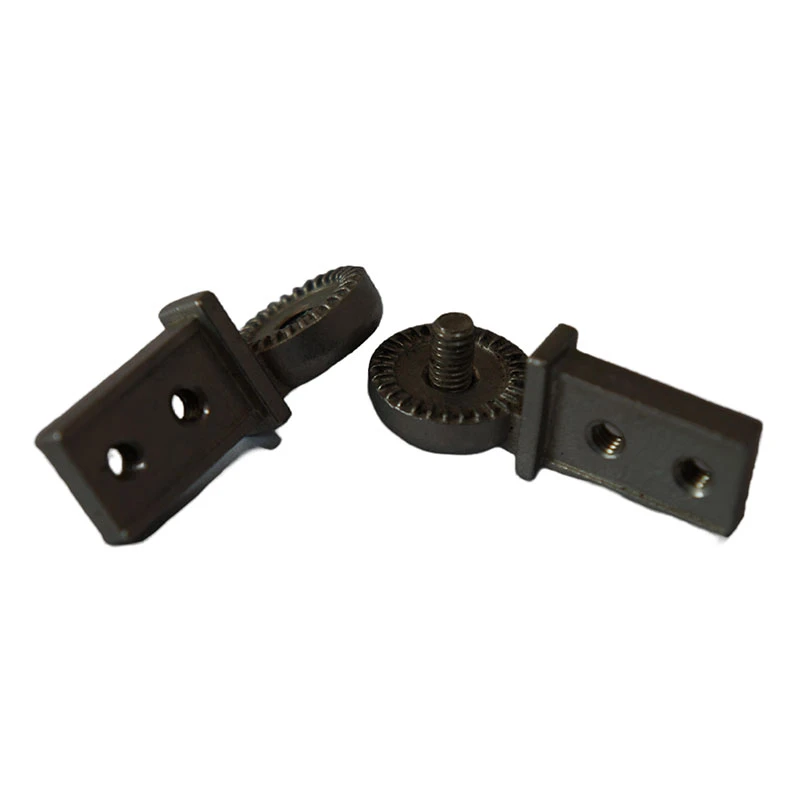Tailored Precision Plastic Machining Solutions for Unique Industrial Applications
Custom Plastic Machining Precision Engineering for Diverse Applications
In the ever-evolving world of manufacturing, the demand for custom plastic machining has seen a significant rise across various industries. As businesses strive for greater efficiency and unique solutions tailored to their specific needs, custom plastic machining emerges as a critical process. This innovative technique allows for the production of intricate parts and components from various types of plastics, providing a versatile and effective solution for a wide range of applications.
Understanding Custom Plastic Machining
Custom plastic machining is the process of cutting, shaping, and finishing plastic materials into specific forms and dimensions required by clients. Unlike traditional manufacturing methods that often rely on mass production, custom machining focuses on creating bespoke parts based on precise specifications. This can involve complex geometries and tight tolerances that are crucial for applications in industries such as aerospace, automotive, medical, and electronics.
The process typically involves several steps, including material selection, design engineering, machining, and finishing. High-quality plastics such as polycarbonate, acrylic, nylon, and PEEK are commonly used due to their excellent mechanical properties, durability, and resistance to chemicals and environmental factors. Each of these materials can be tailored to fit specific functionality and performance requirements, making custom plastic machining highly adaptable.
The Benefits of Custom Plastic Machining
There are numerous advantages to opting for custom plastic machining. One of the most significant is precision. Advanced CNC (Computer Numerical Control) machining technologies allow for incredibly accurate cuts and finishes, minimizing waste and ensuring each component meets its exact specifications. This precision is paramount in industries like aerospace and medical, where even the slightest deviation can lead to failure or safety issues.
Moreover, custom plastic machining offers flexibility in design
. Engineers and designers can work together to develop innovative solutions that meet specific challenges. This capability to create unique shapes and features is invaluable in sectors where standard components do not suffice. Custom solutions can lead to enhanced product performance and longevity, providing a competitive edge in the marketplace.custom plastic machining

Cost-effectiveness is another vital aspect of custom plastic machining. While the initial setup costs might be higher than mass-produced parts, the overall value and lifetime of custom components often offset these expenses. Businesses can reduce maintenance and replacement costs by investing in high-quality, tailored parts designed for durability and efficiency.
Applications of Custom Plastic Machining
The applications of custom plastic machining are vast and varied. In the medical field, for example, custom machined plastic components are used for surgical instruments, housings for medical devices, and other essential tools that require rigorous standards of hygiene and precision. These components often need to be lightweight yet sturdy, making certain plastics an ideal choice.
In the automotive industry, custom plastic machined parts contribute to reducing vehicle weight, improving fuel efficiency, and enhancing overall performance. From dashboard components to intricate engine parts, the right machined plastics can withstand high temperatures and harsh conditions, providing reliability and safety.
The electronics sector also benefits significantly from custom plastic machining. Custom housings for electronic devices ensure adequate protection while allowing for efficient heat dissipation. Plastics are often chosen for their insulating properties, which are crucial for electronic applications.
The Future of Custom Plastic Machining
As technology continues to advance, the future of custom plastic machining looks promising. Innovations in materials and machining technologies, including additive manufacturing and automated machining processes, are paving the way for even greater precision and customization. The sustainability of the plastics used—along with efforts to recycle or repurpose materials—will also play a significant role in the industry's evolution.
In conclusion, custom plastic machining serves as a vital tool for industries seeking unique, precise, and efficient solutions. By leveraging the benefits of advanced machining technologies and high-quality materials, businesses can create components that not only meet but exceed their operational needs. As we move forward, the importance of this manufacturing process will only continue to grow, shaping the future of numerous industries worldwide.
-
Aluminium Pressure Die Casting High-Precision & Durable Solutions for Complex PartsNewsJul.08,2025
-
Top Aluminum Sand Castings Manufacturer – Precision Green Sand Castings for Industrial NeedsNewsJul.08,2025
-
Precision Lost Wax Casting Quotes – High Accuracy Custom Parts Lost Wax Precision Casting ServicesNewsJul.07,2025
-
High-Quality Sand Used for Casting - Superior Sand for Sand Casting ProcessesNewsJul.07,2025
-
China Supply High End Metal Stamping Parts Sino - Precision Manufacturing FactoryNewsJul.06,2025
-
High-Quality Automotive Investment Casting Services Precision & Sand Casting SolutionsNewsJul.06,2025















